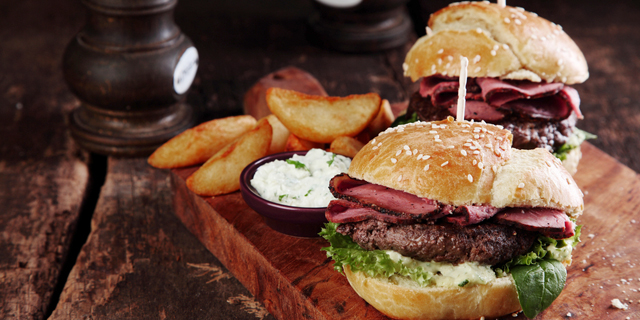
List
Feeling Trashy: These 10 Startups Aim to Reduce Food Waste
Israeli households throw out 880 million kilograms of wasted food annually, which equates to a month and a half of food consumption per household
Year founded: 2016
Funding to date: $2.55 million
Tel Aviv and Amsterdam-based Wasteless Ltd. lets retailers automatically offer differentiated pricing for food products according to their expiration dates. The company’s pricing algorithm tracks inventory and sales and updates prices in real-time using electronic shelf labels. SpareEatYear founded: 2018
Funding to date: Bootstrapped
Tel Aviv-based company LJE Spirit Ltd. operates SpareEat, an app launched in August for iOS and Android. SpareEat lets consumers buy fresh leftover dishes or produce from restaurants, hotels, cafes, and supermarkets. While customers enjoy a discount of up to 50% on the full price of the items, businesses make extra cash on food they could not otherwise sell. SpareEat collects a portion of each transaction as well as a flat monthly fee from businesses.Timeless Foods
Year founded: 2012
Funding to date: $150,000
Based in the Tel Aviv suburb of Ramat Gan, Timeless Foods Technologies Ltd. develops a disposable plastic container that allows food manufacturers to vacuum seal delicate foods and produce, thus significantly prolonging their shelf life without requiring freezing or even refrigeration. The company’s first packaging was developed for pizza and can keep it fresh for up to eight weeks, according to founder Michel Habib.Silo
Year founded: 2016
Funding to date: Approximately $355,000
Last year, foodtech company Silo Kitchen Inc. launched its food container system on Kickstarter, reaching its target of $80,000 in less than 24 hours. The one-touch vacuum-sealing system is designed to keep food fresh longer and reduce food waste. The vacuum machine and box ensemble can be used to store a range of perishable and non-perishable food items, from fresh produce to coffee beans. It integrates with Amazon's voice-activated assistant, Alexa, and identifies the product placed inside Silo’s boxes, tells users when it is time to throw food away, and even updates a user’s shopping list when items near expiry. The company is based in New York and Tel Aviv.Genie
Year founded: 2014
Funding to date: $10 million
Israeli pod-to-meal startup Genie Enterprise Ltd. aims to help curb food waste by developing a machine capable of preparing food on the spot in exact measured quantities. The company offers meal pods that can be prepared in smart ovens that automatically cook meals using a sequence of actions such as heating, cooling, microwaving, and steaming. The company is based just outside of the central Israeli town of Herzliya.Milkit
Year founded: 2014
Funding to date: $1.5 million
Based in central Israeli town Herzliya, Milkit Ltd. offers cafes and restaurants an electric milk-dispensing system that delivers accurately measured doses of milk at the push of a button. The system connects to a patented 10-liter to 15-liter milk bag, saving on single-use milk containers and helping to reduce waste through a programmable, accurate pouring mechanism. The company lists the Carleton hotel in Tel Aviv and chocolate chain Max Brenner International Inc. as customers.Save Foods
Year founded: 2004
Funding to date: $550,000
Tel Aviv-based Save Foods Inc. develops sanitizing products using hydrogen peroxide together with food-grade acids to help extend the shelf-life of fruits and vegetables, thereby reducing food waste. The company’s sanitizing products also sanitize against pathogens—including E. coli, Salmonella, and Listeria—that cause foodborne illnesses, according to company statements.ClariFruit
Year founded: 2017
Funding to date: $1.1 million
Based in the central Israeli town of Rishon LeZion, ClariFruit Ltd. uses computer vision and machine learning technology to quickly evaluate the quality, ripeness, and freshness of fruits and vegetables, thus preventing massive waste. ClariFruit develops a produce monitoring mobile app that scans fruits and vegetables and analyzes their condition to determine whether or not they are ready to go to market. According to the company’s website, the ClariFruit app can analyze data on such elements as the color, size, firmness, and sugar content of a fruit or vegetable.Sufresca
Year founded: 2018
Jerusalem-based Sufresca Ltd. develops edible coatings for fruits and vegetables that facilitate longer shelf life to reduce waste. The company's coatings are tailored for each produce item using specific liquid formulations and reduce spoilage during storage.Related stories
UBQ
Year founded: 2012
Funding to date: $30 million
Tel Aviv-based UBQ Materials Ltd. develops a process of converting food waste, as well as soiled cardboard, paper, and mixed plastics, into reusable bio-based plastic-like material, a substitute for conventional oil-based plastics. UBQ takes the unsorted food waste and dries it, then shreds it, turning it into a homogenous, almost molecular substance that can serve as feedstock for new products.


3 Comments Add Comment